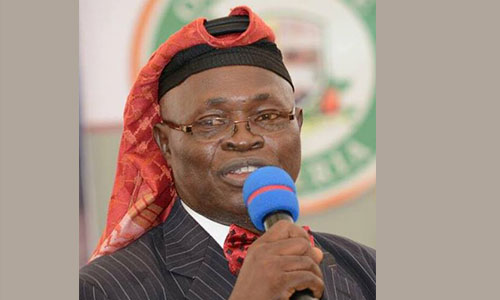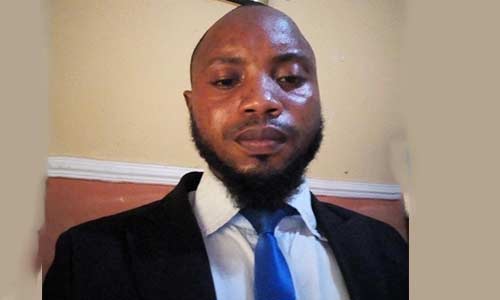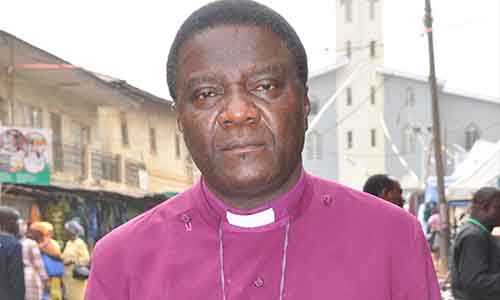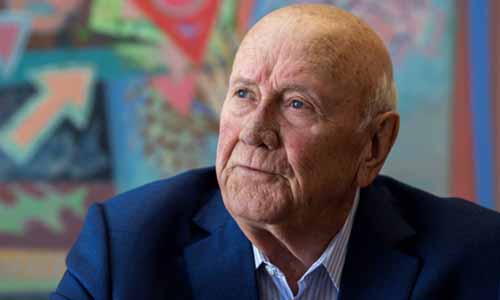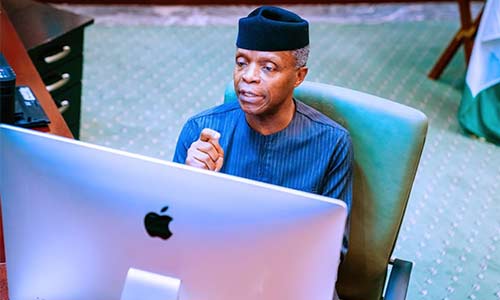By Hossein Saheed
In The Name Of Allâh The Omniscient, The Omnipresent and The Omnipotent.
Whomever Allâh guides, no one can lead him astray. Whomever Allâh sends astray, no one can guide him. The truest word is the Book of Allâh and the best guidance is the guidance of Muhammad. The evilest matters are those that are newly invented, for every newly invented matter is an innovation. Every innovation is misguidance, and every misguidance is in the Hellfire.
It is a fact that the article is a polemic one that will attract a lot of reactions in the world in which many may agree and few may disagree. I am delighted that brother Hameed Ajibola Jimoh Esq is among the few people that disagreed with some of my points which gives me another opportunity to add more facts to my position. With humbleness, I appreciate the rejoinder and contributions of my brother to the article. May Allâh, The Exalted makes the contributions of my brother to the propagation of Islam a ticket for him to Jannah! Aamiin!
However, I observed that the point upon which my brother disagreed with my position was based on his personal understanding of the article where his statement reads: “I would humbly disagree with my brother where his intention is that ‘bowing and or prostration’ as a form of greeting is not prohibited in Islam and therefore, permissible.” Which is not exactly the quotation of my words but his personal understanding of the article which I am not responsible for except what I penned. The forgoing therefore, sponsored the writer to couched his reply to the rejoinder into three legs, they are:
(i). Whether or not children are mandated in Islam to respect their parents.
(ii). Whether or not greeting by bowing in Islam is haram (forbidden) or Shirk (associating god with Allâh).
(iii) Whether or not the hadith where Prophet Muhammad, peace and blessings of Allâh be upon him disallowed Muh’aad Bin Jabal to prostrate for him as cited by my brother from a book of Shielk Adam Abdullah, Al-Ilori (Al-deenuNassiah) points to the fact that bowing in greeting is haram or Shirk in Islam.
The first stand which: Whether or not children are mandated in Islam to respect their parents.
My position is that children are mandated in Islam to respect their parents regardless of the religion their parents belong. My brother, on this, with the consideration of the authority I cited in my article both from the Qur’an and hadith; the life history of Prophet Ibraheem (Abraham) whom his father (Athãra) was a pagan, has no chance than to agree that with me. He manifested this by his statement which reads! “I agree with my brother that it is a matter of obligation for every Muslim child to respect his or her parents so far such does not run contrary to Allaah.” Therefore, It is not necessary for me to keep explaining on this stand point so far my article has been able to command the general acceptability of Muslims without the exclusion of brother Hameed Ajibola Jimoh Esq on the topic. But before I drop my pen on this point, it must be put in record that despite the agreement of my brother with my submission on this topic I observed a particular statement made by my brother in his rejoinder under the topic which reads: “I must also, with due respect, state that in my humble view, the act of disrespect being experienced by some of our Muslim parents from their children is one way or the other as a result of their failure in their parental roles and or responsibilities or not having brought such child up according to the manners of child upbringing in Islam!” With humility, I disagree with my brother on this, there is no any verse of the Qur’ân or hadith that says children should disrespect their parents in whatever way not to even talk on the instances that my brother stated above save the occasion the child in question was invited to associate god with Allâh, The exalted by his pagan parents. Nevertheless, the child must not disrespect them on that ground but dishonour their invitation with humbleness. Allâh, The Exalted says: “But if they (both) strive with you to make you join with Me others that of which you have no knowledge, then obey them not; but behave with them in the world kindly, and follow the path of him who turns to Me in repentance and in obedience. Then to Me will be your return, and I shall tell you what you used to do.” Qur’an 31:15. Allâh, The Exalted says in the verse that “…but behave with them in the world kindly…” These words of Allâh stop whatever arrogant mind a child might have against his parents merely because they invite him to associate god with Allâh. This is to say that he must be kind to them and behave well with them in dishonouring their invitation. It is clear that the canvass of my brother here was based on his humble view which cannot stands as an authority on the topic worthy of convincing a sane and knowledgeable person in Islamic jurisprudence armed with both Qur’ânic and hadith authority which are the primary sources of Islamic law in which its provisions override any provisions from secondary sources. According to my learned brother in his above quoted statement, children can disrespect their parents for their failure to bring them up according to the child upbringing in Islam! However, I want to humbly put it to my brother that if that should be the case there was no way or manner a pagan like Athara, father of prophet Ibraheem (AW), Abu Tâlib, uncle of Prophet Muhammad, peace and blessings of Allâh be upon him and biological father of Seyiduna Ali (RTA) (one of the famous companions of the Prophet), and other pagan parents could bring a child up to the satisfaction of the dictates of Shariah (Islamic law) that will not make the children disrespect them. Why then Prophet Ibraheem did not disrespect his parents considering the fact that he was not brought up according to the way and manner children must be brought up in Islam, and that he (Prophet Ibraheem) hawked idols on different occasions in obedience to his father? Athara did not bring Prophet Ibraheem up in Islamic way or manner yet Prophet Ibraheem was dutiful to him, respected and he obeyed him. Thus, where do the children that are Muslim see the authority to disobey, disrespect and be undutiful to their Muslim parents? There is no single authority for their rudeness in both the primary and secondary sources of Islamic laws. It should also be put in record that Prophet Muhammad, peace and blessings of Allâh be upon him and Seyiduna Ali fought numbers of religion war with pagans and killed pagans for their refusal to accept Islam yet the duo did never disrespect, disobey or be undutiful to Abu Tâlib despite the fact that he was the head of the idol worshipers in Makkah. Why Were the duo keep fighting religion war and never fought a war with Abu Tâlib? Why were the duo despite the numbers of pagans killed never plan or intend to kill Abu Tâlib? That is to tell Islamic world that blood is actually thicker than water! Though some brothers and sisters disobey their parents and the society moral code while hiding under the umbrella of Sunnah but their action has no Islamic origin.
According to Abi Bakr Jâbir Al-jazaa’iry in his book, (Arabic version), Minhajul Muslim, 2008 (1439), Maktabatul-Ulûm wal-hikam, Madinatul-Munawwara, Saudi Arabia, at page 82-83 (translated by me), on the topic Al-adab Ma’al’khaliq meaning, the literature of the creation, he thereunder stated four duties of children to respect their parents which are:
(i). He must be the follower of his parents in whatever thing they command him to do, or not do whatever they disallowed him provided that it will not make him disobey Allâh and disobey His laws, so no one is allowed to follow a creature in disobeying his creator, Qur’ân 31:15 was cited. The learned scholar quoted the hadith of Prophet Muhammad, peace and blessings of Allâh be upon him that: “Verily, following people must be on the righteousness”. And his words that no one must follow a creature to disobey Allâh (the creator).
(ii). Revered them and glorify their affairs, and lower the wing for them, and honor them both in word and in action, and do not shout at them, and do not raise your voice above theirs, and do not walk in front of them, and neither your wife nor your son should inconvenient them, and do not call them with their names except you call with my daddy or my mummy, and do not travel except you seek their permission and their mercy.
(iii). Do right thing for your two parents in what your hands reach, and expand for them your energy of righteousness and kindness, such as feeding them and clothe them, treating their sickness, warding off harm from them, and offering your soul as a sacrifice for them.
(iv). Join the family that has no cordial relationship except in the past and pray and seek forgiveness for them(your parents), enforce their vows and honor their friends.
According to Hafith Sasudeen Muhammad Bin Uthman Al-thâbyy in his book (Arabic version), Al-Kabâir, 2008 (1429), Darl El Fikr -Printers – Publishers – Distributors- Beirut – Lebanon, at page 29-31, translated by me, the Islamic scholar stated that Allah, the Exalted says, “…give thanks to Me and to your parents. To me is the final destination“. In expatiating how children should thank and glorify their parents quoted the hadith of Prophet Muhammad, peace and blessings of Allâh be upon him at page 29 that Ibn Abâs (RTA) reported: Three verses were revealed, coupled with other three things, In which one will not be accepted without the other. (1) Allâh, The Exalted says: “Obey Allâh and obey the Messenger (صلي الله عليه وسلم), Qur’ân 24: 54. He who obeys Allâh and does not obey the Messenger will not be accepted from him. (2) Allâh, The Exalted says: “And perform As-Salât (Iqâmat-as-Salât), and give Zakât..”, Qur’ân 2:43. He who perform Salât and does not give Zakât will not be accepted from him. (3) Allâh, The Exalted says: “give thanks to Me and to your parents.” He who thanks Allâh and does not thank his parents will not be accepted from him.
In another narration, Abi Hurairat (RTA) reported at page 31 that Prophet Muhammad, peace and blessings of Allâh be upon him says: “Four people are mandated for Allâh not to enter them into the Jannah (Heaven) and they will not taste her bliss: Habitual drinkers of booze, and eater of usury, and eater of the orphan’s money unjustly, And who is disloyal to his parents except and until they repent.”
Also on this point, I would, with humility, in order to save time refer my brother to a book (Arabic version), titled Al-adabl-Mufrad by Abi Abdullah Muhammad Bin Ismahil Al-Bukhari, 2008 (1429), 2015 Edition, Maktabat-Âdyyu Al-Muhammadiyy, translated by me on the topics “righteousness of children to even the unjust parents” at page 7, “Allâh cursed who curses his parents” at page 10, and also “righteousness of children to a polytheistic parent” at page 12.
The second stand point: Whether or not greeting by bowing in Islam is haram (forbidden), or shirk (associating god with Allâh).
The position of my brother on this after his submission from the two books Minhajul Mumin by Dr. Mustapha Muraad and AdinnuNassiah by Sheik Adam Abdullah, Al-Ilori cum an hadith where Prophet Muhammad, peace and blessings of Allâh be upon him was reported to have disallowed Mu’haad Bin Jabal not to prostrate for him on the ground that it is prohibited for Muslim Umah to prostrate in greeting when my brother’s statement reads: “From the above authorities which I have referred to, it is my humble submission that greeting in any form by ‘bowing or prostration’ to any person other than Allaah (even though not prohibited for generations before the Prophet Muhammad) has been prohibited for the Prophet Muhammad’s generation from his time till the generation to come till the world shall come to an end (except one is compelled or forced to do so and in that regard, the sin is one the person who forced the doer to commit the sin!” However, to humbly disagree with my brother and put him on the right track regarding my submission, In my article, I did not couch the words ‘bowing and or prostration‘ to mean the same thing as my brother attributed same to me. I, with humility, doubt if my brother read where I said in my article that “…as this writer also takes note of the fact that PROSTRATION should be made NOT TO ANYBODY EXCEPT ALLÂH, The Exalted as stated in Qur’ân 13:15.” And where i said: “This takes the argument of this writer to the fact that PROSTRATING as a form of greeting as displayed during the time of Prophet Yusuf and Adam HAS BEEN OUTLAWED by the new law brought by the last Prophet, the last messenger of Allâh, Prophet Muhammad in the Qur’ân but it does not frown at showing signs in greeting people like parents, elders, kings, sultans, teachers etc.”
Regardless of the above, i would like to humbly put to my brother that the words prostration and bowing do not have same meaning and therefore could not be used together or interchangeably to mean one thing. According to Arabic dictionary, the verb سجد (to prostrate) means to lay one’s forehead flattened on the ground worshiping, while الا نحناء means bowing (the act of bending at the waist, as a sign of respect or greeting).
Considering the definitions, prostration according to Sharia (Islamic Laws) cannot be completed without putting seven parts of the body on the ground. This is stated in an hadith where Ibn Abbas reported that the Messenger of Allah (ﷺ) said: I have been commanded to prostrate myself on seven bones:” forehead,” and then pointed with his hand towards his nose, hands, feet, and the extremities of the feet; and we were forbidden to fold back clothing and hair. Sahih Muslim 490, Book 4, Hadith 260, Book 4, Hadith 994. While bowing on the other hand, is completed on bending on the waist. So how does the words relate that my brother used them together? There is no where in both the Qur’ân and or hadith that the two words were used together or interchangeably, but it is unfortunate that my brother used the two words together in referring same as used by Allâh and the Prophet which is an unnoticed error on the part of my brother. The fact far from fallacy is that neither Allâh nor the Prophet Muhammad, peace and blessings of Allâh be upon him uses the two words together to mean prostration and vice versa; each word stands on its own with its definition in the Shariah.
To buttress the point the more, I would like to point out that Prophet Muhammad, peace and blessings of Allâh be upon him only forbids prostrating for anyone other than Allâh even in greeting but not forbids bowing and or kneeling as a sign of respect or greeting on the injunction of an hadith cited above. The hadith that authenticates bowing and or kneeling as a sign of respect or greeting on this stand point is where Seyiduna Umar (RTA) was reported to have in one occasion knelt before Prophet Muhammad and he did not stop, forbid or disallow him. Narrated Anas bin Malik: Allah’s Messenger (ﷺ) came out as the sun declined at midday and offered the Zuhr prayer. He then stood on the pulpit and spoke about the Hour (Day of Judgment) and said that in it there would be tremendous things. He then said, “Whoever likes to ask me about anything he can do so and I shall reply as long as I am at this place of mine. Most of the people wept and the Prophet (ﷺ) said repeatedly, “Ask me.” `Abdullah bin Hudhafa As-Sahmi stood up and said, “Who is my father?” The Prophet (ﷺ) said, “Your father is Hudhafa.” The Prophet (ﷺ) repeatedly said, “Ask me.” Then `UMAR KNELT BEFORE HIM and said, “We are pleased with Allah as our Lord, Islam as our religion, and Muhammad as our Prophet.” The Prophet then became quiet and said, “Paradise and Hell-fire were displayed in front of me on this wall just now and I have never seen a better thing (than the former) and a worse thing (than the latter). Sahih al-Bukhari 540. Book 9, Hadith 17.
Abu Bakr in another hadith was reported to have knelt down for Prophet Muhammad, peace and blessings of Allâh be upon him where it was Narrated Abu Ad-Darda: While I was sitting with the Prophet, Abu Bakr came, lifting up one corner of his garment uncovering his knee. The Prophet (ﷺ) said, “Your companion has had a quarrel.” Abu Bakr greeted (the Prophet (ﷺ) ) and said, “O Allah’s Messenger (ﷺ)! There was something (i.e. quarrel) between me and the Son of Al-Khattab. I talked to him harshly and then regretted that, and requested him to forgive me, but he refused. This is why I have come to you.” The Prophet (ﷺ) said thrice, “O Abu Bakr! May Allah forgive you.” In the meanwhile, `Umar regretted (his refusal of Abu Bakr’s excuse) and went to Abu Bakr’s house and asked if Abu Bakr was there. They replied in the negative. So he came to the Prophet (ﷺ) and greeted him, but signs of displeasure appeared on the face of the Prophet (ﷺ) till Abu Bakr pitied (`Umar), so he knelt and said twice, “O Allah’s Messenger (ﷺ)! By Allah! I was more unjust to him (than he to me).” The Prophet (ﷺ) said, “Allah sent me (as a Prophet) to you (people) but you said (to me), ‘You are telling a lie,’ while Abu Bakr said, ‘He has said the truth,’ and consoled me with himself and his money.” He then said twice, “Won’t you then give up harming my companion?” After that nobody harmed Abu Bakr. Sahih al-Bukhari 3661, Book 62, Hadith 13
In the above hadiths, if bowing is actually forbidden in Islam will Prophet Muhammad, peace and blessings of Allâh be upon him allow Umar to kneel for him? So also will he allow Abu Bakr to kneel for him as well. Kneeling is worst than bowing, kneeling requires the kneels to touch the ground to be completed but no part of the body touches ground in bowing. To buttress the point more, eleven stars prostrated for Prophet Yusuf, Joseph (ASW) but, Sun, Moon, Stars, hills, Trees, Insects and animals prostrated for Prophet Muhammad, peace and blessings of Allâh be upon him. Will the Prophet Muhammad, peace and blessings of Allâh be upon him knew bending on the waist or kneeling in greeting is restricted to Allâh alone and he will accept such from Umar and Abu Bakr as well as prostration from the above mentioned creatures? Therefore, considering the above hadiths and other authorities cited in the article, I reiterate that bowing in greeting and or in respecting is allow in Islam as, I humbly with humility, disagree outrightly with the position of my brother.
On the third stand point: Whether or not the hadith where Prophet Muhammad, peace and blessings of Allâh be upon him disallowed Mu’haad Bin Jabal to prostrate for him as cited by my brother from a book of Shielk Adam Abdullah, Al-Ilori (Al-deenuNassiah) points to the fact that bowing in greeting is haram or Shirk.
Having recognised the difference between the words prostration and bowing, it is safe for me to say that prostration is a sign of glorification to Allâh which cannot be attributed to another person as used by Allâh in the Qur’ân when He (Allâh) says: “And from among His signs are the night and the day, and the sun and the moon. Prostrate yourselves not to the sun nor the moon, but prostrate yourselves to Allâh Who created them, if you (really) worship Him”, Qur’ân 41:37. And other verses in the Qur’ân as well as hadith. This verse points to the fact that prostration is for Allâh alone. Nevertheless, there is no evidence in the verse pointing to the fact that bowing and or kneeling in greeting is haram in Islam.
My brother, in his submission, cited the hadith of Ibn Maajah to back his position where it was reported that Ibn Maajah (1853) and al-Bayhaqi (14711) narrated that ‘Abdullah ibn Abi Awfa said: When Mu‘aadh ibn Jabal came from Syria, he prostrated to the Prophet (blessings and peace of Allah be upon him), who said, “What is this, O Mu‘aadh?” He said, I went to Syria and saw them prostrating to their archbishops and patriarchs, and I wanted to do that for you. The Messenger of Allah (blessings and peace of Allah be upon him) said, “Do not do that. If I were to command anyone to prostrate to anyone other than Allah, I would have commanded women to prostrate to their husbands. With respect Sir, my response to the hadith can be split into two. (i). It has been reported sir, that the hadith is ضعيف (weak) based on the ground that Prophet Muhammad, peace and blessings of Allâh be upon him had died before Mu’haad came back from Syria so, where did Mu’haad prostrate for the messenger of Allâh? (ii). Even though Mu’haad actually prostrated as fabricated by some brothers, considering the difference between prostration and bowing or kneeling there is no evidence in the hadith pointing to the fact that bowing should not be used to greet and or respect people. Bowing is different from prostration but, despite the above stated facts concerning the hadith, my brother still deems it fit to cite the weak hadith in a wrong way by using “prostration and or bowing” which is even in contradiction to the exact words used in the fabricated hadith. Prophet Muhammad, peace and blessings of Allâh be upon him did not explain how Muslims should greet each other he only unfolded statement of greeting which is Assalam Alaeykum warahmatullah wabarkaatuh to Muslims. Due to this, every culture is at liberty to choose any convenient mode of greeting provided it is not against the Shariah.
To shed more light on this, it is safe to say that whenever the word prostration is used in Islamic books it means worshipping Allâh, The Exalted. It is on this fact the Messenger of Allâh, peace and blessings of Allâh be upon him says in an hadith where Ibn Abbas reported that the Messenger of Allah (ﷺ) said: I have been commanded to prostrate myself on seven bones:” forehead,” and then pointed with his hand towards his nose, hands, feet, and the extremities of the feet; and we were forbidden to fold back clothing and hair. Sahih Muslim 490, Book 4, Hadith 260, Book 4, Hadith 994. In the hadith, Prophet Muhammad said he was commanded by Allâh to prostrate on seven parts of the body. This does not stop bowing with a sole mind of respecting or greeting.
The word bowing is not used in the entire authorities cited by my brother to disagree with my position in his rejoinder which could have pointed to the fact that bowing or kneeling to greet or respect anybody is not allowed in Islam. Thus, the word prostration used especially in the books Minhajul Mumin and AddeenulNassiah that my brother cited could not stands as evidence forbidding bowing and or kneeling in greeting. There is no evidence in the duo books pointing to the fact that bowing in greeting is prohibited in Islam. It will not be out of place, therefore, to state that bowing and kneeling can be used to greet and respect people with reference to how Seyyiduna Umar and Abu Bakr (RTA) knelt to Prophet Muhammad, peace and blessings of Allâh be upon him. This takes the writer to where ‘Iyad bin Himar (May Allah be pleased with him) said: The Messenger of Allah (ﷺ) said, “Verily, Allah has revealed to me that you should adopt humility. So that no one may wrong another and no one may be disdainful and haughty towards another.” [Muslim]. Riyad as-Salihin, Book 18, Hadith 1589.
Conclusively, there is no Qur’ânic provision and or authentic hadith saying children should not respect their parents or greet by bowing. The only available hadith under this is where the Prophet of Allâh (Muhammad) was reported to have warned Mu’haad not to prostrate for him. However, both knowledge and history told us that the hadith is weak and unauthentic as Prophet Muhammad, peace and blessings of Allâh be upon him had died before the returning of Mu’haad. This weak hadith is what some of brothers in Islam rely upon to disagree, undutiful, rude and disrespect their parents, SubhanaLlah! This is nothing but a spread of bitterness, hatred and violence in Islam. The seal to practice Shariah and know Allâh, The exalted is the proper understanding of the words of Allâh and hadith of of the Messenger of Allâh, Muhammad, peace and blessings of Allâh be upon him. In the hadithl-Qudusy Allâh says: “know me before you worship me”. Thus, who can know Him without familiar himself or herself with His words in the Qur’ân? Reading the principles of Islamic law on google without going to standard Arabic school would ruin one’s like beyond repair because google is not where one can get the nitty-gritty of Islamic jurisprudence.
Children had been brainwashed by this weak hadith not to greet or respect their parents, spouse had divorced on account of this matter because wife refused to greet her husband by bending, countless number of children had been cursed by their parents on this same matter, what for? Numberless of brothers had separated their parents on the account that it is better for them to cut their relationship with their parents than to offend Allâh while with hatred mind ignore the words of Allâh in Qur’ân 17:23-24. I read it somewhere that a brother had a quarrel with his father. However, after reconciliation he was demanded to kneel just the way Umar knelt to Prophet Muhammad, to apologise to his father but he refused outrightly. This caused another conflict and set the entire family in problem, i ask you, is this the teaching of Allâh and the Prophets?
Proper understanding of Islam is a key to engendering a harmonious social relationship in Islamic kingdom. The actualization of Muslim unity can only be achieved with seven things: if we can be more tolerant and respect other’s view and personality, if we address our differences with maturity and politeness, and by avoiding name-calling and by giving others benefit of doubt, spreading Sunnah by teaching and practice and when we work on personal spiritual and intellectual upliftment. I pray to Allâh, The Exalted to overlooks my error herein, forgives me my sins, grants me and the entire Muslim Ummah (group) proper understanding of Islam and unite us in goodness, Aamiin!
Assalam Alaeykum warahmatullah wabarkaatuh!
Hossein Saheed, Law Student, Faculty of Law, Al-hikmah University, Ilorin, Kwara State.
Phone No: +23407030265309, Email: [email protected]
thenigerialawyer.

